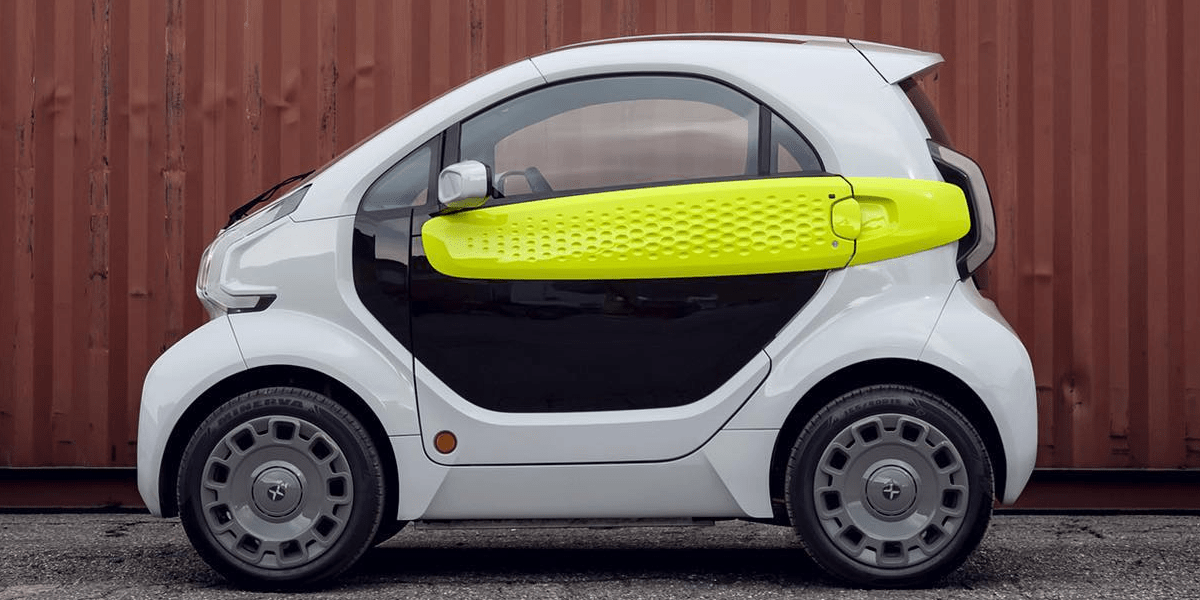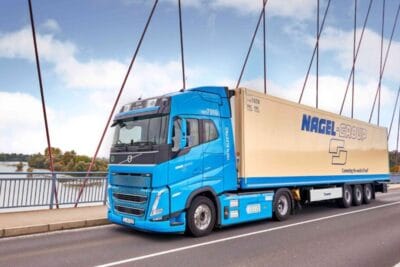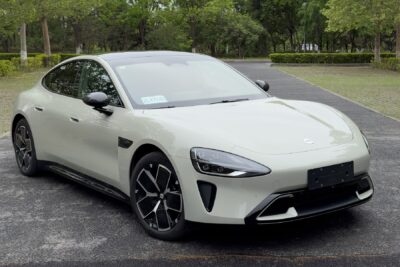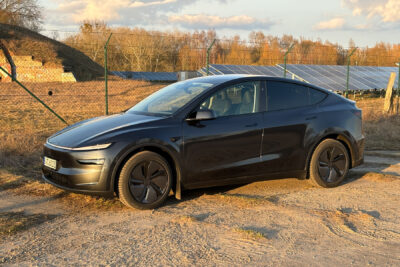XEV launches serial production of 3-D printed mini-EV
The Italian start-up XEV unveiled the production version of its 3D-printed electric small car Yoyo at the IAA Mobility. Sales are now also starting on the home market in Italy. At a minimum of 13,900 euros before subsidies, prices are significantly higher than originally announced.
When the Yoyo was first unveiled in spring 2018, it was still said that the L7e-class mini-vehicle would initially be released on the Chinese market. This was reported by Chinese media at the time, but there was never an official statement.
China was the logical choice of location because XEV builds the Yoyo together with Chinese suppliers. But now it is clear that the electric vehicle will initially be offered “in all important European markets”. First and foremost in Italy. There, the Yoyo will cost from 9,900 euros after promotion. At the end of 2019, the manufacturer from Turin announced its intention to offer a price starting at 7,995 euros in Europe.
Let’s take a look at the technical data of the two-seater, which is 2.53 metres short and weighs only 450 kilograms (without battery): The Yoyo is driven by a permanent synchronous motor on the rear axle, which offers 7.5 continuous and 15 kW peak power. This is combined with a replaceable LFP battery with 10.4 kWh and 77 volts. In this configuration, the Yoyo is supposed to cover up to 150 kilometres, but according to the so-called Urban Dynamometer Driving Schedule test cycle, or UDDS for short. A standard that is authoritative for city traffic, but unrealistic for everyday use. XEV specifies a top speed of 80 km/h. The figures differ somewhat in some places. In some places, the figures differ somewhat from those announced for 2019. At the time, a higher peak power was planned, but also a lower battery energy content.
Meanwhile, the architecture of the Yoyo consists of a steel frame, while many of the body and interior parts are manufactured by 3D printing. As a result, the compact BEV also has a high plastic content. Other features include a panoramic roof, a mini boot with 160 litres of volume and 14- or 15-inch wheels. XEV puts the permissible total weight at 850 kilograms, with the battery weighing 75 kilograms. It is interesting to note that the Yoyo is taller than it is wide. The complete dimensions are 2,530 mm long, 1,500 mm wide, 1,560 mm high and a wheelbase of 1,680 mm.
The model can be charged either via an earthed socket or via a Type 2 connection – whereby the charging process from 30 to 100 per cent at the latter is said to take a rather long four hours. However, XEV wants to create an alternative battery exchange system so that empty batteries can be exchanged either at appropriate stations or via a bookable mobile service or manually. The 10.3-kWh energy storage system consists of three 25-kilogram batteries, which are easily accessible at the rear of the mini-vehicle and for which XEV provides a three-year warranty.
To create a stationary exchange system, XEV has just recently signed an agreement with petrol station operator Eni. According to the agreement, the “sustainable and efficient urban mobility solution will be available at selected Eni filling stations in the coming months”. Part of the deal is also that the Yoyo will become part of the Enjoy fleet, Eni’s car-sharing service, from 2022.
In terms of looks, XEV plans to offer components of the vehicle in a range of different styles, making it easy to customise the Yoyo. Among the equipment highlights, the start-up mentions a digital speedometer and a 10-inch infotainment touchscreen in the cockpit, as well as air conditioning.





0 Comments